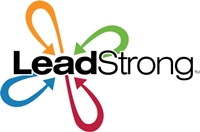Social Influence Survey (SIS) for Adults

Welcome to the SIS for adults!
Background: Originally the Social Influence Survey (SIS) was created to identify observable behaviors in children, preteens and teens, to estimate an aptitude for learning leadership skills. The SIS continues to be used for those enrolling in our preteen and teen training programs. (For more information on these programs for your children or organization, contact us through this website.) Our LeadStrong program is for young adults, ages 19-25. Plus, as KidLead has grown, more people have requested a similar tool for distinguishing people who’d make good Koaches. A Koach is a person who facilitates learning in teams of 4-6 students during one of KidLead’s preteen and teen training programs. Therefore, we’ve created this SIS for adults, ages 19 and above.
Explanation: The adult adaptation of the SIS measures observable leadership behaviors among those over 18 years of age. You can use the SIS for yourself and your organization, as an inexpensive (FREE) yet thoughtful instrument. The SIS is modeled after high end leadership assessments, although we’ve tried to make it user friendly and simplified. We believe in the importance of leader development, but many assessments are expensive and must be debriefed by a certified trainer. This SIS is offered free by KidLead Inc. Please pass the word about KidLead’s young leader training resources.
Instructions: Simply answer the 25 questions on the person noted. If this is for yourself, mark “SELF” in the “Responder” line and answer the questions as if you were looking at yourself from the perspective of someone who knows you socially. There are no right or wrong, good or bad answers. Mark the response that seems most appropriate from your perspective. If you do not feel you can adequately answer a question, mark “Unsure.”
Results/Feedback: The results will be tabulated and e-mailed to whoever’s e-mail address is placed on the form. If you’d like to have others observe you, ask them to forward the results to a third party. This neutral person can debrief the results with you. The reason is that if others answer the questions, knowing you’ll see their answers, they’re less apt to be honest than if done anonymously. This is what is commonly referred to as 360° assessment, when people above, below, and alongside of you in an organization respond to these questions. You can use this as a personal growth resource and provide talking points to further develop your leadership skills.
Alan E. Nelson, EdD
Founder of KidLead
